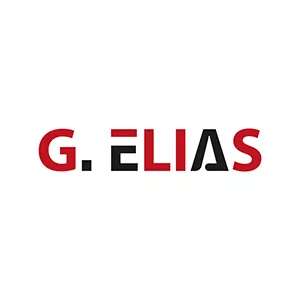- within Intellectual Property topic(s)
- within Intellectual Property, Insolvency/Bankruptcy/Re-Structuring and Finance and Banking topic(s)
- with readers working within the Law Firm industries
Introduction
In a competitive market as is the case these days, intellectual property ("IP") protection affords small businesses and startups with an opportunity for survival as it works to strengthen their competitive advantage, attract investors and develop appealing products that will attract patronage.
IP refers to the creations of the mind and includes inventions, artistic works, designs, images, literary works etc. It is that category of property that includes intangible creations of the human intellect. It is further defined under the Nigerian Startup Act, 2022 as the result of creativity protectable by copyright, trademark, trade secrets, Industrial designs and patent registrations in Nigeria.1 Intellectual Propriety Rights ("IPRs") on the other hand refers to the legal right given to an inventor or creator granting it an exclusive right over the IP created usually for a certain period. By IPRs, legal protection is awarded to intellectual properties allowing its creators or owners earn recognition and financial benefit from their creations.
A startup is defined under the Nigerian Startup Act, 2022 as a company in existence for not more than 10 years, with its objectives being the creation, innovation, production, development or adoption of a unique digital technology, innovative product, service or process.2 A small business on the other hand according to the Small and Medium Industries Enterprise Scheme refers to any enterprise with a maximum asset base of N200 million, excluding land and working capital, with at least ten or more than 300 staff.3
In this article, we examine the importance of protection of IP for startups and small businesses, challenges to protecting IP and effective strategies that can be adopted by small businesses and startups to ensure that these rights are adequately safeguarded.
IP: Small Businesses and Start-ups in focus
The essence of IP protection cannot be overemphasized particularly in today's fast paced business environment. IP impacts not just the giants in industries but also small businesses and startups. IPRs are so essential for startups and small businesses. The recognition of the importance of IPRs to startups has also been embedded in statutes. By section 31 of the Nigeria Startup Act 2022, the National Council for Digital Innovation and Entrepreneurship (the "Council") acknowledges the importance of adequate protection of IP towards the growth and development of a startup and small business.
Further to this, the National Information Technology Development Agency ("NITDA") which serves as the secretariat of the Council is charged with encouraging IPRs holders to exploit these rights as well as assist them in commercialising their rights. The NITDA is also charged to collaborate with various IP registries in ensuring ease of registration for startups as well as providing relevant assistance.4
Various IPRs impact on startups and small businesses, however the most prominent of these rights are: copyright, trademark, patents, industrial designs and trade secrets.
- Copyright: refers to the IPR granted to creators over their literary, artistic, audiovisuals, sound recordings, broadcast, and musical works. In the Nigerian legal space, copyright is governed by the Nigerian Copyright Act, 2022. Copyright grants its owners with economic and moral rights. By the economic rights, a holder of copyright has the right to derive financial reward from the use of their works by others. While by the moral rights, such holder is entitled to be recognized as the author or creator of such work.
- Trademark: this is governed primarily by the Trademarks Act, Cap T13, LFN 2004 as amended by the Business Facilitation (Miscellaneous Provisions) Act, 2023 ("BFA"). A trademark refers to a sign, symbol or mark used in distinguishing the products or services of one business from those of other businesses. Section 69 of the BFA defines trademark to mean a mark used or proposed to be used in relation to goods and services for the purpose of indicating a connection between the goods or services and a person having the right, either as a proprietor or as a registered user, to use the mark, whether with or without any indication of the identity of that person, and may include shape of goods, their packaging and combination of colours.
- Patents: is an exclusive right granted for an invention. A patent confers on its holder the exclusive use and economic exploitation for the invention it captures. That is, the inventor is granted monopoly over its invention. The principal legislation for patents in Nigeria is the Patents and Designs Act Cap P2, LFN 2004 as amended by the BFA.
- Industrial Designs: this refers to that aspect of IP that covers the appearance or aesthetic aspect of an article. It is governed by the Patents and Designs Act Cap P2, LFN 2004 as amended by the BFA. It may consist of three-dimensional features, such as the shape of an article, or twodimensional features, such as patterns, lines or colour. The holder of the IPR over an industrial design has the right to prevent third parties from making, selling or importing articles bearing or embodying a design which is a copy, or substantially a copy, of the protected design, when such acts are undertaken for commercial purposes.
- Trade Secrets: refers to IPRS over confidential information which may be sold or licensed. To qualify as a trade secret, the information sought to be protected must satisfy the following requirements: it must be (a) commercially valuable; (b) only known to a limited group of persons; and (c) be subject to reasonable steps taken by the rightful holder to keep it secret, including the use of confidentiality agreements for business partners and employees.5
The above IPRs are territorial and last for specified durations. The import of this being that a registered IPR in Nigeria cannot be enforced in Ghana save for certain special circumstances. Also, the right granted to a holder of any of these IPRs last for specified durations, e.g. patents last for twenty (20) years subject to renewal, trademark lasts for seven (7) years etc. Other IPRs include trade secrets, geographical indication and plant variety. A particular product can be protected by a combination of IPRs. Thus, a product can be protected by any combination of patent, copyright, industrial design, and trademark etc.
Importance of Protection of IP to Startups and Small Businesses
In today's market, with digitalization and globalization, small businesses and startups are faced with very strong competition. The competition in the market for these small businesses transcends domestic competition but is also inclusive of foreign competition.
In today's market, ideas are the currency of innovation, thus protecting the products and services developed by startups and small businesses cannot be over-emphasized. The protection of the IP of these businesses to prevent copy by competitors and also aid the market expansion of the business is now very crucial. The myth that only large companies protect their IP is unfunded and erroneous. According to a 2019 EPO/EUIPO study, it was demonstrated that small medium enterprises that have at least one IP rights are twenty-one (21%) per cent more likely to experience a growth period.6 Furthermore, a recent survey conducted by the World Trademark Review ("WTR") indicatesthat online enforcement of IPRs has increased about sixty-three (63%) percent since the start of the year 2024, this shows the importance of IP protection to enterprises. 7
Adequate protection of IP is important and beneficial to startups and small businesses for the following reasons:
- Brand Protection and Promotion: IPRs like copyright and trademarks can aid a startup or small business in creating as well as protecting its brand identity. This will in turn lead to increased customer loyalty and trust for such business. Trademarks can be used to distinguish the products or works of the startup or business from that of other competitors. Copyright, on the other hand, can also be used to protect works like business logos or marketing materials. The WTR in its recent publication stated that 50% of respondents have reported experiencing an increase in domain infringement over the past 12 months and fourteen (14%) per cent reported an increase in infringement, this data suggests that there is an increasing need for startups and small businesses to take active steps in protecting IP rights.8
- Creates value: IP protection also adds value to a startup or small business. Investors are more willing to invest in businesses that have protected their intellectual property as it demonstrates a commitment to innovation. Also, by protecting their IP, such businesses have a strong competitive advantage and is thus a good investment choice.
- Revenue generation: IP can also be monetized by such small businesses or startups who has obtained protection for same. These businesses can licence or sell their IP, thus generating royalties or other forms of revenue.
- Provides monopoly: by protecting the ideas and creations of a business, such startup or small business acquires monopoly over that invention or creation. The implication of this being that only such registered owner of the IP has the exclusive right to use and profit from such work. The significance of this for small businesses is that it prevents competitors particularly the big businesses in the market from copying or exploiting such invention or work for their own gain.
- Defence mechanism: the protection of intellectual property also serves as a defence mechanism for startups and small businesses against theft or infringement by competitors. This will also help these businesses avoid legal battles which could significantly impact their finances.
By protecting their works, these businesses are able to differentiate themselves in the market and stay ahead.
To view the full article, click here.
Footnotes
1. See section 47 of the Startup Act.
2. Ibid.
3. World Trade Center "Small and Medium-Sized Enterprises (SMES): An Assessment to its Inclusion in Nigeria Trade" August 28, 2023 https://wtcabuja.com/latest-news/trade-services/small-and-medium-sized-enterprises-smes-an-assessment-toits-inclusion-in-nigeria-trade/ accessed on March 11, 2024.
4. See section 31 (3) (4) of the Startup Act.
5. WIPO, "Trade Secrets" https://www.wipo.int/tradesecrets/en/ accessed April 12, 2024.
6. WIPO "IP Protection: Building Value and Growth for Small Businesses", March 2021, https://www.wipo.int/wipo_magazine/en/2021/01/article_0003.html accessed on March 10, 2024
7. WTR "IP in an evolving digital world: online brand protection survey results revealed", April 2024, https://www.worldtrademarkreview.com/article/ip-in-evolving-digital-world-online-brand-protection-survey-resultsrevealed accessed on April 10, 2024.
8. Ibid
The content of this article is intended to provide a general guide to the subject matter. Specialist advice should be sought about your specific circumstances.




